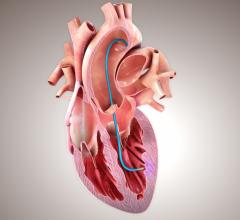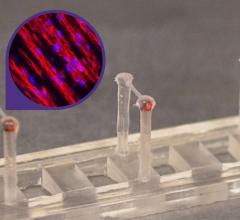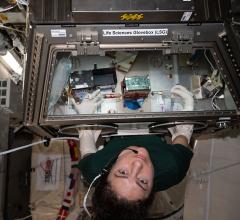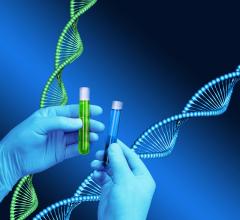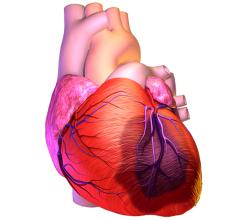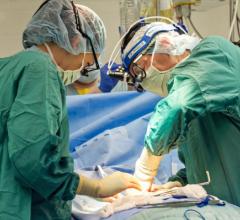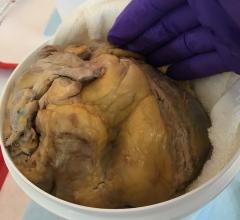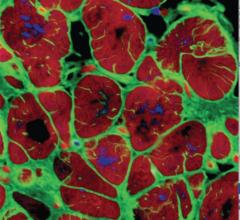February 6, 2015 — Case Western Reserve’s chemical compound aimed at restoring spinal cord function may have an additional purpose: stopping potentially fatal arrhythmias after heart attack.
Case Western Reserve neurosciences professor Jerry Silver, Ph.D., long has believed that lessons learned over decades from spinal cord research could someday apply to other areas of the body. He got the chance to test his theory when a colleague from another campus realized that his new compound — intracellular sigma peptide (ISP) — could address a critical cardiac issue.
The results of the project, led by Oregon Health & Sciences University (OHSU) researcher Beth A. Habecker, Ph.D., exceeded even Silver’s greatest hopes: 100 percent success in animal models. Details can be found in the Feb. 2 edition of Nature Communication.
“Essentially, the OHSU group cured arrhythmia in the mouse using ISP,” Silver said. “They observed true regeneration right back into the scar within the infarct area. This is pretty exciting.”
Habecker, professor and interim chair of OHSU’s physiology and pharmacology department, is similarly enthusiastic about the findings. “Patients who survive a heart attack remain at high risk for cardiac arrest and severe arrhythmias,” explained Habecker, the paper’s senior author. “Recent clinical studies suggest sympathetic denervation predicts the risk for cardiac arrest. Our study shows that this risk can be decreased by intervening with ISP to promote axon regeneration into the cardiac scar.”
At first, the idea sounds counterintuitive: A peptide shown to restore function in spinal cords could help stop an active malfunction in hearts. But once researchers looked more carefully at the reasons for the respective problems, ISP’s benefits to both became clear. Spinal paralysis and denervation in the heart each stem from failed nerve regeneration caused by a family of inhibitory molecules called proteoglycans that form in scar tissue following injury or even the trauma of a cardiac procedure. ISP’s role is to revive those nerves by allowing them to ignore the repulsing scar molecules.
The Nature Communications paper reflects work done entirely at OHSU after Silver’s lab provided enough of the compound for Habecker’s team to perform their experiment. The effort involved simulating the impact of an actual heart attack in mice, and then “treating” it with the ISP, saline or a non-therapeutic peptide (the control).
Two weeks later, the OHSU scientists found that all of the mice that received ISP regained normal levels of sympathetic cardiac nerve function throughout the left ventricle, including the heart attack-damaged areas. Additionally, telemeter readings on these animals showed no arrhythmia activity. In contrast, animals treated with saline or the control peptide had cardiac sympathetic denervation in areas of their hearts damaged by the myocardial infarction, and as a consequence, experienced arrhythmias.
“My role was that of a supplier,” Silver said. “It was really important that this study of the peptide be conducted without my involvement. The study at OHSU provided independent validation that the peptide works in animals. And it confirmed the effectiveness of ISP in a completely different model — heart attack. That kind of replication is rare.”
The discovery has significant potential in heart attack treatment. Currently, 7 to 10 percent of people die within the first six months from sudden cardiac death due to arrhythmia. ISP shows promise in serving as the basis for prophylactic treatment to prevent arrhythmia within the first months of a heart attack.
Next steps in moving ISP forward will be testing the peptide as a post-heart attack treatment in larger animals. Such tests would reveal maximum tolerated dose, any toxicity potential and the extent to which the peptide infiltrates scar tissues. Additionally through animal studies, investigators wish to learn whether ISP administered several months, or even years, after a heart attack would confer a similar benefit as treatment administered three days post-heart attack.
For more information: www.casemed.case.edu


 November 19, 2021
November 19, 2021 
